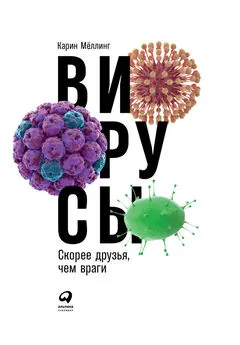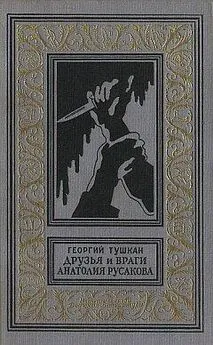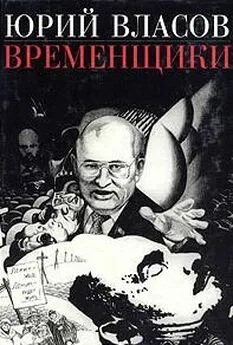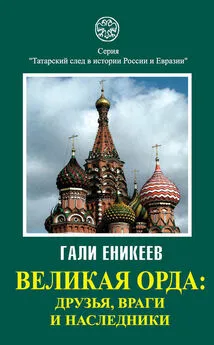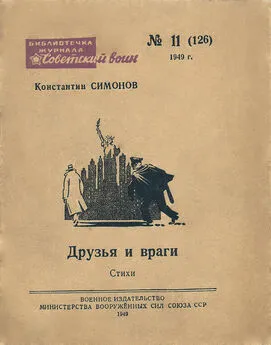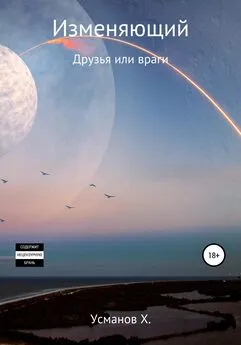Карин Мёллинг - Вирусы: Скорее друзья, чем враги
- Название:Вирусы: Скорее друзья, чем враги
- Автор:
- Жанр:
- Издательство:Альпина Паблишер
- Год:2018
- Город:Москва
- ISBN:978-5-9614-5270-9
- Рейтинг:
- Избранное:Добавить в избранное
-
Отзывы:
-
Ваша оценка:
Карин Мёллинг - Вирусы: Скорее друзья, чем враги краткое содержание
Вирусы есть повсюду: в воздухе, растениях и животных, внутри нас самих и даже на нашей коже. Они борются с бактериями, влияют на погоду, наше самочувствие и настроение, могут способствовать ожирению или лечить от него. Вирусы – часть нашего генома! Они помогли нам стать теми, кто мы есть.
Известная вирусолог Карин Мёллинг описывает невероятный и мало знакомый нам мир вирусов. Из книги вы узнаете о прошлом вирусов, о том, как они помогали людям эволюционировать, и о том, как мы можем использовать их в будущем.
Вирусы: Скорее друзья, чем враги - читать онлайн бесплатно ознакомительный отрывок
Интервал:
Закладка:
Matzen, K. et al., Moelling, K., RNase H-mediated retrovirus destruction in vivo triggered by oligodeoxynucleotides, Nat. Biotechnol. 2007; 25:669; Commentary: Johnson, W.E., Assisted suicide for retroviruses, Nat. Biotech. 2007; 25:643.
Wittmer-Elzaouk, L. et al., Moelling, K., Retroviral self-inactivation in the mouse vagina, Antiviral Res. 2009; 82:22.
HIV Future: Hütter, G., Transplantation of blood stem cells for HIV/AIDS?, J. Int. AIDS Soc. 2009; 12:10.
Faria, N.R. et al., HIV eipdemiology. The early spread and ignition of HIV-1 in human, Science 2014; 346:56.
Reverse transcriptase: Baltimore, D., RNA-dependent DNA polymerase in virions of RNA tumour viruses, Nature 1970; 226:1209.
Temin, H.M. and Mizutani, S., RNA-dependent DNA polymerase in virions of Rous sarcoma virus, Nature 1970; 226:1211.
Mölling, K. et al., Association of viral RT with an enzyme degrading the RNA of RNA-DNA hybrids, Nat. New. Biol. 1971; 234:240.
Moelling, K., RT and RNase H: In a murine virus and in both subunits of an avian virus, CSH SyQB1975; 39:269.
Moelling, K., Targeting the RNase H by rational drug design, AIDS2012;26:1983.
Moelling, K. et al., Relationship retroviral replication and RNA interference, CSH SyQB2006; 71:365.
Simon, D.M. and Zimmerly, S., A diversity of uncharacterized RTs in bacteria, NAR2008; 36:7219.
Lampson, B.C., Inouye, M., and Inouye, S., Retrons, msDNA, bacterial genome, Cytogenet. Genome Res. 2005; 110:491.
Moelling, K. and Broecker F., The RT-RNase H: From viruses to antiviral defense, Ann. N. Y. Acad.Sci. 2015; 1341:126.
RNase H: Tisdale, M. et al., Moelling, K., Mutations in the RNase H of HIV-1 infectivity, J. Gen. Virol. 1991; 72:59.
Broecker, F., Andrae, K., and Moelling, K., Activation of HIV RNase H, suicide a novel microbicide?, ARHR2012; 28:1397.
Song, J.J. et al., Structure of Argonaute and implications for RISC slicer, Science 2004; 305:1434.
Malik, H.S. and Eickbush, T.H., RNase H suggests a late origin of LTR from TE, Genome Res. 2001; 11:1187.
Crow, Y.J. et al., Jackson, A.P., Mutations in genes encoding ribonuclease H2 subunits cause Aicardi-Goutiѐre syndrome and mimic congenital viral brain infection. Nat. Genet. 2006; 38:910.
Cerritelli, S.M. and Crouch, R.J., Ribonuclease H: The enzymes in eukaryotes, FEBS J. 2009; 276:1494.
Nowotny, M., Retroviral integrase superfamily: The structural perspective, EMBO Rep. 2009; 10:144.
Arshan Nasir, A., Sun, F.-J., Kim, K.M., and Caetano-Anolles, G., Untangling the origin of viruses and their impact on cellular evolution, Ann. N. Y. Acad. Sci. 2014; 1341:61.
Telomerase: Greider, C.W. and Blackburn, E.H., A specific telomere terminal transferase, Cell 1985; 43:405.
Skloot, R., The Immortal Life of Henrietta Lacks (Crown Publishing Group, 2010).
Nandakumar, J. and Cech, T.R., Finding the end: Recruitment of telomerase, Nat. Rev. Mol. Cell. Biol. 2013; 14:69.
Budin, I. and Szostak, J.W., Transition from primitive to modern cell membranes, PNAS2011; 108:5249.
Sarcoma saga: Martin, G. S., The hunting of the Src, Nat. Rev. Mol. Cell. Biol. 2001; 2:467.
Yeatman, T.J. and Roskoski, R. Jr., A renaissance for SRC, Nat. Rev. Cancer 2004; 4: 470.
Oncoproteins: Donner, P., Greiser-Wilke, I. and Moelling, K., Nuclear localization and DNA binding of Myc, Nature 1982; 296:262 and Moelling, K. et al., Nature 1984, 312:551, Myb, Cell 1985; 40:983.
Axel, R., Schlom, J., and Spiegelman, S., Presence in human breast cancer of RNA homologous to MMTV , Nature 1972; 235:32.
Raf-kinase: Moelling, K. et al., Serine–threonine PK activities of Mil/Raf, Nature 1984; 312:558.
Zimmermann, S. and Moelling, K., Phosphorylation and regulation of Raf by Akt, Science 1999; 286:1741.
Rommel, C. et al., Differentiation specific inhibition of Raf-MEK-ERK by Akt, Science 1999; 286:1738.
Zimmermann, S., Moelling K., and Radziwil, G., MEK1 mediates positive feedback on Raf, Oncogene 1997; 15:1503.
Dummer, R. and Flaherty, K.T., Resistance with tyrosine kinase inhibitors in melanoma, Curr. Opin. Oncol. 2012; 24:150.
Das Thakur, M., et al., Modelling Vemurafenib resistance in melanoma, Nature 2013; 494:251.
Holderfield, M. et al., Targeting RAF kinases for cancer therapy: BRAF-mutated melanoma and beyond, Nature Rev. Cancer 2014; 14:455.
McMahon, M., Parsing out the complexity of RAF inhibitor resistance, Pigment Cell Melanoma Res. 2011; 24:361.
Sun, C. et al., Bernards, R., Reversible resistance to BRAF(V600E) inhibition in melanoma, Nature 2014; 508:118.
Myc: Liu, J. and Levens, D., Making Myc, Curr. Top Microbiol. Immunol. 2006; 302:1.
Tumor suppressor: Gateff E: Malignant neoplasms of genetic origin in Drosophila, Science 1978; 200:1448.
Sherr, C.J. and McCormick, F., The RB and p53 pathways in cancer. Cancer Cell 2002; 2:103.
Yi, L. et al., Multiple roles of p53 in somatic and stem cell differentiation, Cancer Res. 2012; 72:563.
Wang, T. et al., Retroviruses shape the transcriptional network of p53. PNAS2007; 104:18613.
Metastases and cancer: Baumgartner, M. et al., Moelling, K., SRC-migration and invasion by PDZ, MCB2008; 28:642.
Broecker, F. et al., Moelling, K., Transcription of C-terminal metastatic c-Src mutant, FEBS J. 2016; 283:1669.
Cancer general: Vogelstein, B. et al., Cancer genome landscape, Science 2013; 339:1546 .
Hanahan, D. and Weinberg, R.A., Hallmarks of cancer: The next generation, Cell 2011; 144:646.
zur Hausen, H., Papillomaviruses and cancer: From basics to clinical application, Nat. Rev. Cancer 2002; 2:342.
Cancer different: Han, Y.C. et al., Ventura, A., miR-17–92-mutant mice, Nat. Genet. 2015; 47:766–75.
Prostata: Kearney, M. et al., Coffin, J.M., Multiple sources of contamination in XMRV infection, PLoS ONE2012; 7: e30889.
Bacteria and cancer: Salama, N. et al., Life in the human stomach: Helicobacter pylori, Nat. Rev. Microbiol. 2013; 11:385.
Phages and microbiome: Suttle, C.A., Viruses in the sea, Nature 2005; 437:356.
Reardon, S., News: Phage therapy: Phage therapy gets revitalized, Nature 2014; 510:15.
Young, R.Y. and Gill, J.J., Phage therapy redux – What is to be done?, Science 2015; 350:1163.
Delwart, E., A roadmap to the human virome, PLoS Pathog. 2013; 9: e1003146.
Zarowiecki, M., Metagenomics with guts, Nat. Rev. Microbiol. 2012; 10:674.
Turroni, F. et al., Human gut microbiota and bifidobacteria, A. van Leeuwenhoek 2008; 94:35.
Gut: Turnbaugh, P.J. et al., Gordon, J.I., The effect of diet on human gut microbiome, Sci. Transl. Med. 2009; 1:6ra14.
Qin, J. et al., A human gut microbial gene catalogue by metagenomic sequencing, Nature 2010; 464:59.
Katsnelson, A. et al., Twin study surveys genome for cause of multiple sclerosis, Nature 2010; 464: 1259.
Mokili, J.L., Rohwer, F. and Dutilh, B.E., Metagenomics and future virus discovery, Curr. Opin. Virol. 2012; 2:63.
Cesarean section: Dominguez-Bello, et al., Microbiota of cesarean-born infants, Nat. Med. 2016; doi:10.1038/nm.4039.
Endogenous viruses: Weiss, R.A. and Stoye, J.P., Virology. Our viral inheritance, Science 2013; 340:820.
Feschotte, C. and Gilbert, C., Endogenous viruses: Viral evolution and host biology, Nature Rev. Gen. 2012; 13:283.
Plants global warming: Roossinck, M.J., The good viruses: Viral mutualistic symbioses. Nat. Rev. Microbiol. 2011; 9:99.
Roossinck, M.J., Lifestyles of plant viruses, Philos. Trans. R. Soc. Lond. B. Biol. Sci. 2010; 365:1899.
Placenta: Mi, S. et al., Syncytin – a retroviral envelope in human placenta. Nature 2000; 403:785.
Polydnavirus: Bezier, A. et al., Polydnaviruses of braconid wasps derive from an ancestral nudivirus, Science 2009; 323: 926.
Strand, M.R. and Burke, G.R., Polydnaviurses as symbionts and gene delivery systems, PLoS2012; Pathog 8: e1002757.
Prionen: Mahal, S.P. et al., Transfer of a prion strain leads to emergence of strain variants, PNAS2010; 107:22653.
Chlorella virus: Van Etten, J., Giant viruses; American Scientist 2011.
Van Etten, J., Lane, L.C. and Dunigan, D., DNA viruses: The really big ones (Giruses), Ann. Rev. Microbiol. 2010;64:83.
Broecker, F. et al., Viral composition in the intestine after FT, CSH Mol. Case Stud. 2016; 2: a000448.
Moelling, K. (Ed.), Nutrition and microbiome, Ann. N. Y. Acad. Sci. (2016).
Mimivirus: Boyer, M. et al., Mimivirus genome reduction after intraamoebal culture, PNAS2011; 108:10296.
Raoult, D. and Forterre, P., Redefining viruses: Lessons from mimivirus, Nat. Rev. Microbio. 2006; 6:315.
Raoult, D. et al., Claverie, J.M., The 1.2-megabase genome sequence of mimivirus, Science 2004; 306:1344.
Philippe, N. et al., Pandoraviruses: Amoeba viruses with genomes up to 2.5 Mb, Science 2013; 341:281.
La Scola, B. et al., Raoult, D., A giant virus in amoebae, Science 2003; 299:2033.
Mollivirus sibericus: Legendre, M. et al., Mollivirus sib. 30,000y giant virus in Acanthamoea, PNAS2015; 112:10795 .
Sambavirus: Campos, R. K., Sambavirus: Mimivirus from rain forest, The Brazilian Amazon, Virol. J. 2014; 11:95.
Origin of giant viruses: Pennisi, E., Ever bigger viruses shake tree of life, Science 2013; 341:226.
Yutin, N., Wolf, Y.I., and Koonin, E.V., Origin of giant viruses from smaller DNA viruses, Virology 2014; 466–467:38.
Virophages, Sputnik: Yutin, N., Raoult, D. and Koonin, E., Virophages, polintons, and transpovirons: A complex evolutionary network of diverse selfish genetic elements with different reproduction strategies, Virology J. 2013; 1:15.
Fischer, M.G. and Suttle, C.A., A virophage at the origin of large DNA transposons, Science 2011; 332:231.
Forterre, P., The origin of viruses and their possible roles in major evolutionary transitions, Virus Res. 2006; 117:5.
Amoeba: Huber, H. et al., A new phylum of archaea represented by a nanosized hyperthermophilic symbiont, Nature 2002; 417:63.
Slimani, M. et al., Amoebae as battlefields for bacteria, giant viruses, and virophages. J. Virol. 2013; 87:4783.
Eyes: Yutin, N. and Koonin, E.V., Proteorhodopsin genes in giant viruses, Biology Direct 2012; 7:34 .
Archaea: Stetter, K.O., A brief history of the discovery of hyperthermophilic life, Biochem. Soc. Trans. 2013; 41:416.
Podar, M. et al., A genomic analysis of the archaeal system Ignicoccus hospitalis– Nanoarchaeumequitans, Genome Biol. 2008; 9: R158.
Mochizuki, T. et al., Archaeal virus with exceptional architecture, largest ssDNA genome, PNAS2012; 109:13386.
Prangishvili, D., Forterre, P. and Garrett, R.A., Viruses of the archaea: A unifying view, Nat. Rev. Micro. 2006; 4:837.
Endogenous viruses: Weiss, R.A., The discovery of endogenous retroviruses, Retrovirol. 2006; 3:67.
Phoenix: Katzourakis, A. et al., Discovery of first endogenous lentivirus, PNAS2007; 10:6261.
Katzourakis, A. and Gifford, R.J., Endogenous viral elements in animal genomes, PLoS Genet. 2010: 6: e1001191.
Dewannieux, M. et al., Identification of an infectious progenitor for the HERV-K, Genome Res. 2006; 16:1548.
Koalas: Tarlinton, R.E., Meers, J., and Young, P.R., Retroviral invasion of the koala genome, Nature2006; 442:79 .
Paleovirology: Belyi, V.A., Levine, A.J. and Skalka, A.M., Sequences from ancestral ssDNA viruses in vertebrate genomes: The parvoviridae and circoviridae are more than 40 to 50 mio years old, J. Virol. 2010; 84:12458 .
Gifford, R.J., A transitional endogenous lentivirus from a basal primate for lentivirus evolution, PNAS2008; 105:20362.
Читать дальшеИнтервал:
Закладка:
